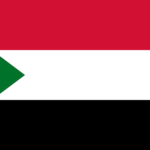Twenty-one days after armed fighting broke out between two factions of the Sudanese makeshift government, some 364 of the reportedly 5000 Nigerians trapped in that country finally began to arrive home, following weeks of yet another chaotic but distinctly Nigerian evacuation process.
The “Nigerian factor” of not doing things right, of often deliberately bungling them up, of not taking rules seriously, and of appearing helpless in the face of responsibility all variously explain why it has taken so long, and with so much individual and collective suffering, for the first batch of returnees to arrive home.
The returnees were received by the Minister of Humanitarian Affairs, Disaster Management & Social Development, Sadiya Umar Farouk; Director General, National Management Emergency Agency (NEMA), Ahmed Mustapha and Chairman/CEO of the Nigerians in Diaspora Commission (NIDCOM), Abike Dabiri-Erewa. The very composition of this federal government ‘delegation’ to receive the returnees should send alarm bells ringing. Pray, what have these officials and the ministries, departments and agencies (MDAs) they represent got to do with evacuating Nigerians stranded in a foreign country, be it Sudan or Ukraine?
Evacuating one’s citizens from another country, regardless of the circumstances, is invariably a diplomatic function that is best handled by Nigeria’s Ministry of Foreign Affairs and its embassies and consulates across the world. In the extant case, however, NEMA and the Humanitarian ministry got ahead of themselves, to the extent that, Nigeria’s Ambassador in Sudan, Safiu Olaniyan, resorted to self-help to clarify that it is the Ministry of Humanitarian Affairs and NEMA, not he and his embassy, who were in charge of an evacuation that is otherwise his job description and happened directly in his immediate location.
Drug abuse: A societal backward issue
Concerns over rising cases of kidnapping in FCT suburbs
“I just want to let you know that the embassy is not in charge of the bus contracts. We’ve not received any money from anybody to hire buses. We are arranging the logistics. Those who are arranging the buses are the ministry of humanitarian affairs in Nigeria, as well as NEMA. So our own is to get the necessary instructions that this and this has been arranged and we just give instructions to the students to meet at so-and-so place and that’s what we’ve been doing. The present arrangement that appears to have broken down was also midwifed in Nigeria”, Ambassador Olaniyan said in a voice note that has since gone viral.
We frown at the usurpation of functions by MEMA and the Humanitarian Ministry in this evacuation process. Evacuating Nigerians trapped in danger in another country requires engaging informally or directly with several sister diplomatic entities, often on the basis of written and unwritten rules of diplomatic negotiations that only diplomats are familiar with. Why we commend the NEMA and its ministry’s good intentions, we urge them both to stay off the business of other ministries in the future. True, evacuating Nigerians from any conflict zones outside of the country will inevitably be a task carried out by several MDAs, given the multifaceted nature of such a process. Still one ministry must be at the lead, and in this case, it is the ministry of foreign affairs, not a ministry with a wholly domestic remit.
That said, however, the Ministry of Foreign Affairs must also wake up to its duties. All too often, our foreign embassies pass themselves off as either simply unwilling, or unable or rather too slow to stand for Nigerians when they find themselves in danger abroad. Indeed, the most vulnerable person on earth maybe a Nigerian in another country, simply because Nigeria’s embassies and consulates have not developed ways of connecting with Nigerians in ways that make them feel protected, and therefore, proud to be Nigerian.
The conflict in Sudan, for example, didn’t just break out of nowhere three weeks ago. It has been raging underground since 2019, when former strongman leader Omar Al-Bashir, was removed from power via a popular uprising. Where are the regular security and safety advisories by the Nigerian embassy in Sudan on the situation of things there? Where are the advisories warning to Nigerian parents and students that with almost no real government, Sudan is unsafe for more Nigerian students? It is with such advisories that Nigerians will learn to take our foreign embassies seriously, not just viral messages of our diplomats crying out of helplessness.
Moreover, the Ministry of Foreign Affairs must develop a clear protocol for evacuating Nigerians trapped in conflict zones that clearly delineate the functions and obligations of any government MDAs involved. And since Nigerians seem to think it is a bona fide right for them to be evacuated by the government when in danger abroad, even when their travel is of their own volition, such a protocol must make clear what rights citizens are entitled to, and therefore, should expect in such circumstance. The evacuation protocol must also be well rehearsed by all relevant government agencies, as well as known to Nigerian travellers. Above all, Nigerian citizens must also learn to abide by rules and regulations of other countries. Unlike the impression we create at home here, many countries actually take their laws very seriously, and would punish those who disregard them, either flagrantly or in the name of being “smart”.
We must not always turn a misfortune into a scandal.

 Join Daily Trust WhatsApp Community For Quick Access To News and Happenings Around You.
Join Daily Trust WhatsApp Community For Quick Access To News and Happenings Around You.


